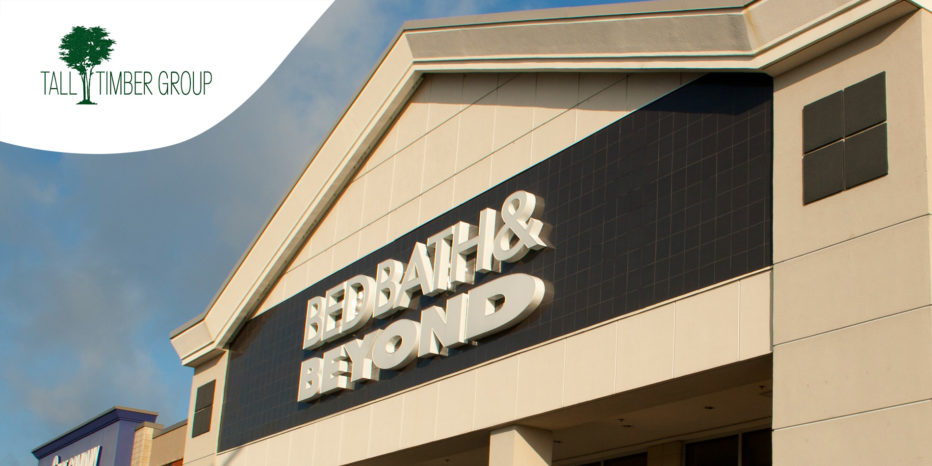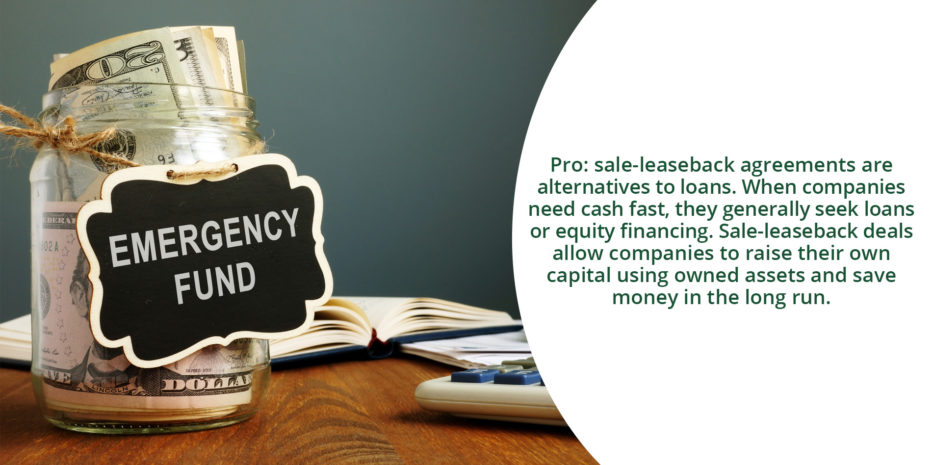
Bed Bath & Beyond Nets $250 Million in Recent Retail Real Estate Deal
The stagnation or flat out devaluation of retail real estate values has been well documented in recent years. Dead malls and empty storefronts aren’t just headlines in the news, they are apparent for most of us in our daily lives. Yet it isn’t all doom and gloom. Brick & mortar retail is bouncing back in many regions and within many business sectors. Perhaps more importantly, commercial real estate owners are finding new and different methods to make retail spaces profitable again. In the case of Bed Bath & Beyond, their recent sale and leaseback arrangement could set a precedent for other struggling retailers to get an influx of liquid cash while also planning for the future.

Details of the Recent $250 Million Bed Bath & Beyond Property Sale
Bed Bath & Beyond sold a large portion of its owned commercial real estate in January for a grand total of $250 million. The sale included a wide range of properties including multiple retails stores, office space, and a distribution center, totaling 2.1 million square feet. The commercial real estate portfolio was purchased by Oak Street Real Estate Capital, a privately owned real estate firm operating out of Chicago. It is estimated that the 2.1 million square foot sale accounts for approximately 50% of the real estate owned by Bed Bath & Beyond.
As part of the sales agreement, Bed Bath & Beyond has agreed to lease these properties back from Oak Street Real Estate Capital for an undisclosed period of time. According to Bed Bath & Beyond CEO Mark Tritton: “This marks the first step toward unlocking valuable capital in our business that can be put to work to amplify our plans to build a stronger, more efficient foundation to support revenue growth, financial stability and enhance shareholder value.”

Why This Move is Being Viewed as a Positive for Shareholders
Bed Bath & Beyond, like many struggling retailers, has a debt problem. According to their own public financial reports, the retail giant had accumulated approximately $1.5 billion in total debts as of early 2019. This had investors concerned in previous years. The decision to dump about half of its real estate interests was viewed as a smart move by many in the investment industry based on the fact that Bed Bath & Beyond desperately needed liquid capital to reinvest in their business.
New CEO Mark Tritton prioritized the sale of this property to free up the value of the company’s portfolio. Of course, renting vs. owning creates its own set of headaches. Now Bed Bath & Beyond is on the hook to wisely use this influx of cash to turn a profit or risk wasting their previously owned real estate assets.

Some Pros and Cons of “Sale-Leaseback” Deals
Sale-leaseback agreements are relatively uncommon, but they can certainly be mutually beneficial under the right circumstances. With deals like the one struck between Bed Bath & Beyond and Oak Street Real Estate Capital, there are some key benefits and risks that come with the territory, including:
- Pro: the new lessee frees up capital. As we have already reviewed, perhaps the most obvious and important benefit from the perspective of the seller is the injection of cash they receive from the sale of their real estate. This one in the hand is worth two in the bush only works if organizations reinvest their cash wisely.
- Pro: sale-leaseback agreements are alternatives to loans. When companies need cash fast, they generally seek loans or equity financing. Sale-leaseback deals allow companies to raise their own capital using owned assets and save money in the long run.
- Con: tax implications. $250 million in cash sounds like a great deal, but Bed Bath & Beyond may be responsible for paying property sales tax on their new cash injection. There are deductions and reinvestment options to save on taxes, but taxes will be part of the picture regardless.
- Con: lost long term value. Owning property might not be as sexy as making a huge sale, but the value of real estate cannot be overstated in the long haul. Selling massive real estate interests can be detrimental overall.
Impact of the Deal on Commercial Real Estate Going Forward
Sale-leaseback deals are nothing new. The impact of Bed Bath & Beyond’s recent real estate dump might come down to how the move impacts the company’s financial standing in the next few years. Complicating matters further, the recent Coronavirus fueled bear market has muddied the public’s ability to track Bed Bath & Beyond’s financial health in March and beyond. Projections still suggest that the move will benefit Bed Bath & Beyond in the long term. This may prompt other cash strapped retailers to make similar decisions with their commercial real estate portfolios.
It will also be telling to see whether the company continues to sell its remaining CRE assets. Other major retailers like Macy’s and Sears have also employed this in the past with mixed results. Whether the latest major sale-leaseback is a revitalization or a last gasp, it will likely inform the future decisions of other companies in similar situations moving forward.
